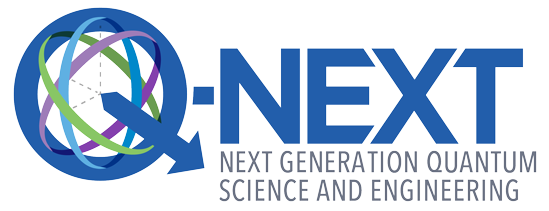quantum computing
-
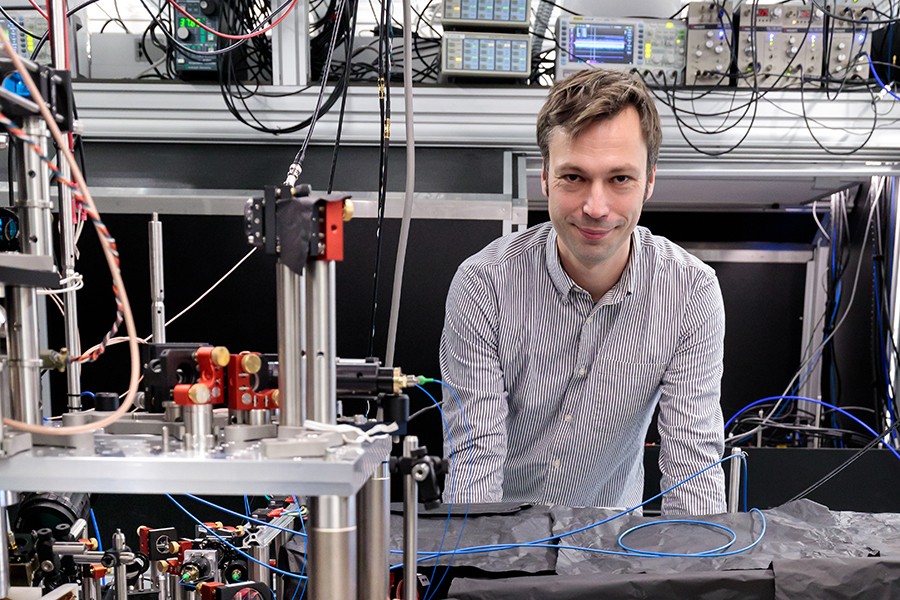
‘Noise-cancelling’ qubits developed at UChicago to minimize errors in quantum computers
Researchers at the University of Chicago have developed a new method to constantly monitor the noise around a quantum system and adjust the qubits, in real time, to minimize error. The approach, described in "Science," relies on spectator qubits: a set of qubits embedded in the computer with the sole purpose of measuring outside noise rather than storing data. The information gathered by such spectator qubits can then be used to cancel out noise in vital data-processing qubits. Read More
-
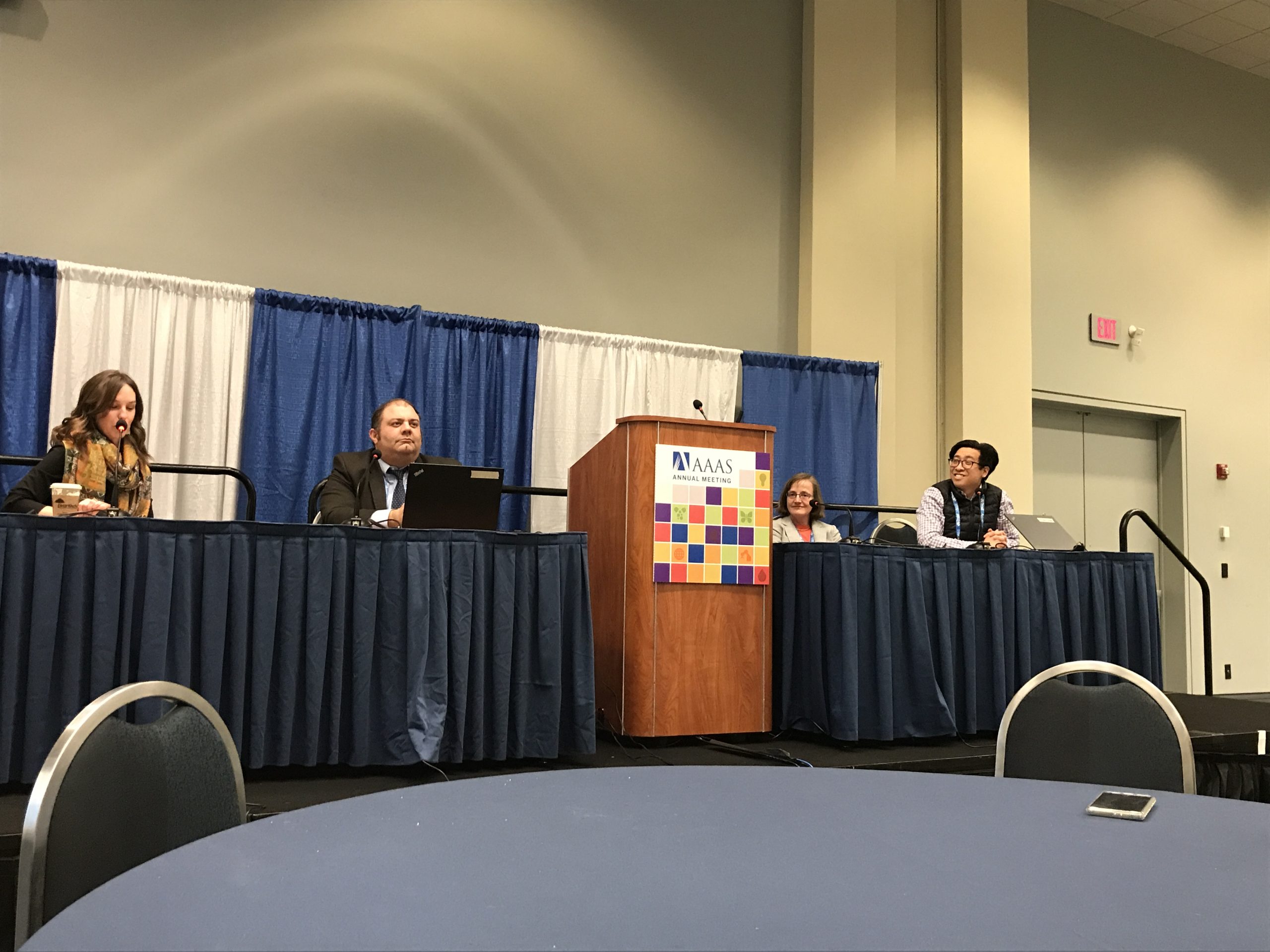
Democratizing quantum information science
At the 2023 AAAS Meeting in Washington, DC, experts discuss how the scientific community can make quantum information science more accessible and reach a wider base of innovators. Read More
-
U of C to develop quantum supercomputer with Google, IBM and University of Tokyo
From the Chicago Tribune: The University of Chicago has formed a partnership with Google, IBM and the University of Tokyo to develop a supercomputer powered by quantum technology. IBM pledged $100 million toward the project, and Google is to spend $50 million, on technology that could transform computing and information networks. Quantum computing, which is in its infancy, potentially could solve complex problems quickly, beyond the ability of conventional computing. Read More
-
University of Chicago gets quantum tech funding from IBM, Google
From Bloomberg: The University of Chicago will partner with IBM and Google in deals totaling as much as $150 million aimed toward the development of quantum computing. IBM’s vision centers on a quantum-centric supercomputer. The company will develop blueprints with the University of Chicago and the University of Tokyo over 10 years in a plan valued at $100 million. The partnership between the universities and Google will invest as much as $50 million toward accelerating the creation of a fault-tolerant quantum computer and developing the quantum workforce over 10 years. Read More
-
University of Chicago joins global partnerships to advance quantum computing
From the University of Chicago: On May 21, alongside world leaders at the G7 Summit in Japan, the University of Chicago formalized groundbreaking agreements with industry and university partners to transform the future of quantum technology. The first is a 10-year, $100 million plan with IBM, the University of Chicago and the University of Tokyo to develop the blueprints for building a quantum-centric supercomputer powered by 100,000 qubits. The second is a strategic partnership between the University of Chicago, the University of Tokyo and Google, with Google investing up to $50 million over 10 years, to accelerate the development of a fault-tolerant quantum computer and to help train the quantum workforce of the future. Read More
-
Google, IBM validate U of C's quantum ambitions
From Crain's Chicago Business: The University of Chicago will get a major boost in funding and credibility as one of the leaders in the next frontier of computing, known as quantum, after attracting $150 million from IBM and Google for a research partnership with the University of Tokyo. Read More
-
IBM, Google give $150 Million for U.S.-Japan quantum-computing push as China looms
From the Wall Street Journal: IBM and Google are giving $150 million for quantum computing research at the University of Chicago and the University of Tokyo. IBM will give $100 million to the two universities with the aim of building a quantum-centric supercomputer in a decade that contains 100,000 qubits. Google is contributing $50 million to the two universities — the first time the company would share its quantum computer with university scientists as part of a long-term research partnership. Read More
-

-
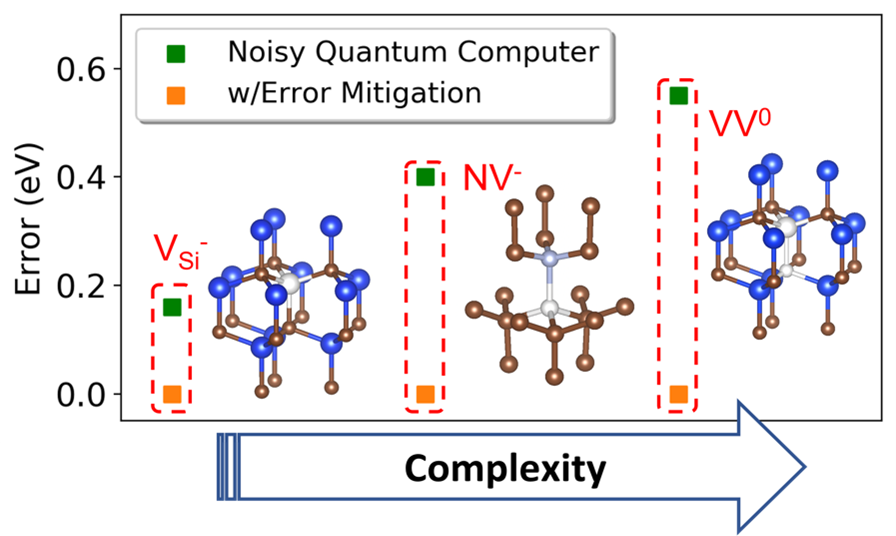
A new quantum approach to solve electronic structures of complex materials
From the University of Chicago: Researchers at the University of Chicago and Argonne National Laboratory have explored the possibility of solving the electronic structures of complex molecules using a quantum computer. The research, which uses a combination of new computational approaches, was published online in the Journal of Chemical Theory and Computation. Read More
-
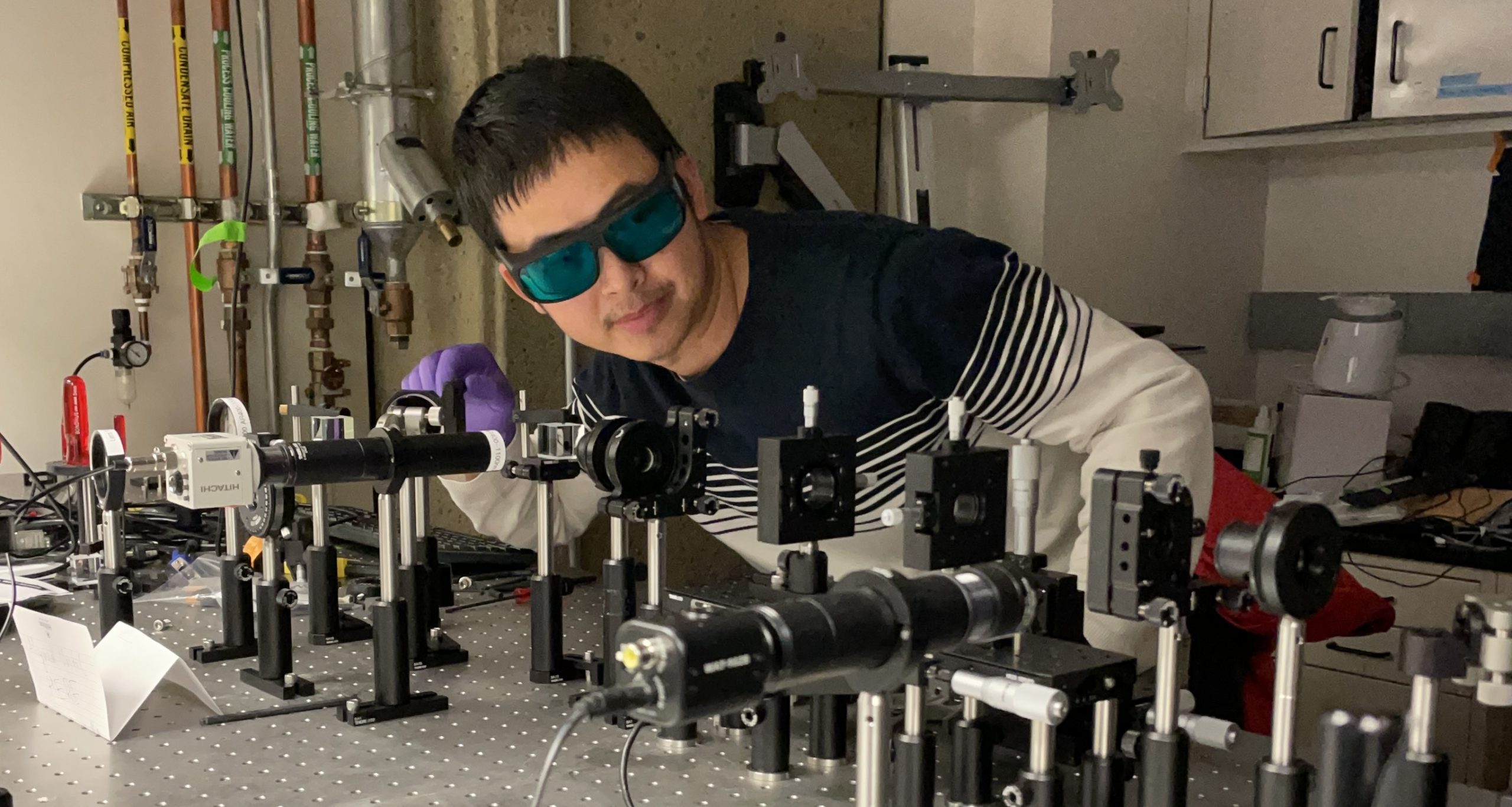
Feng Pan sculpts ultrathin materials for quantum information research
The Stanford University postdoctoral researcher develops high-tech materials to deliver photon packages of quantum information. Read More
In the News
See all In the News-
The best qubits for quantum computing might just be atoms
From Quanta: Mark Saffman of the University of Wisconsin–Madison and Infleqtion is featured in this comprehensive overview of neutral-atom qubit research. Read More
-
How quantum computing could help us understand the universe
From PBS NewsHour: David Awschalom appears in this piece on the next generation of computing, one that will be far more sophisticated and dependent on understanding the subatomic nature of the universe. Read More
-
PME-led research into protein-based qubits earns $2.75M Moore Foundation grant
Bolstered by a new $2.75 million grant from the Gordon & Betty Moore Foundation, a team led by University of Chicago's Peter Maurer will soon study qubits made from protein. Read More
-
Infleqtion unveils 5-year quantum computing roadmap, advancing plans to commercialize quantum at scale
From Quantum Insider: Infleqtion shares a broad business update, including the first look at its new 5-year quantum computing roadmap. The roadmap's centerpiece is Sqorpius, the next phase of Infleqtion’s quantum computing program. Read More
-
Bringing quantum entanglement to the people
From the National Science Foundation: NSF’S Quantum Leap Challenge Institute Hybrid Quantum Architectures and Networks at the University of Illinois Urbana-Champaign, a Q-NEXT partner, has created a working demonstration that brings entanglement between photons to a public setting for the first time. Read More
